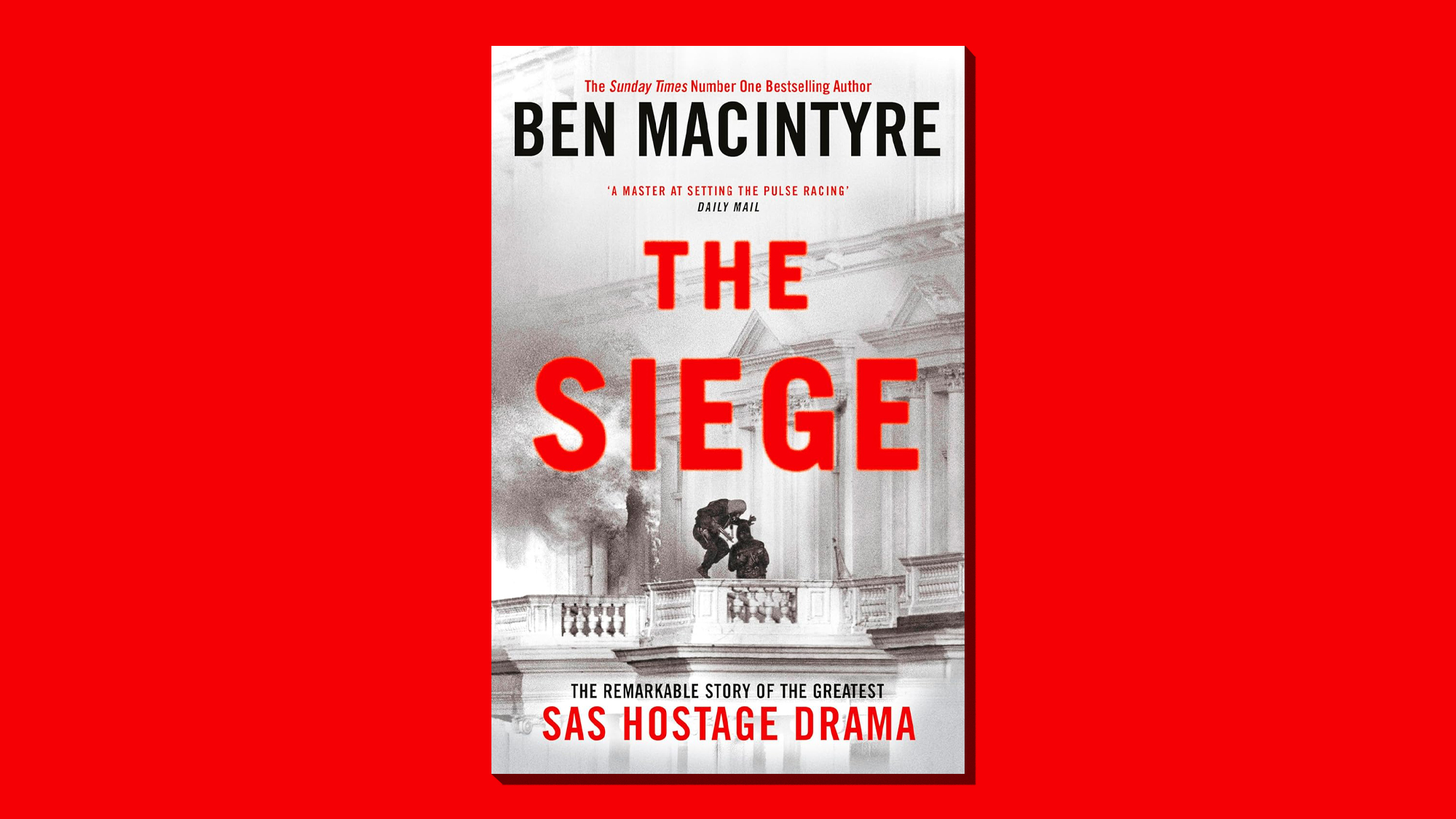The Siege: 'fresh and gripping' account of the Iranian embassy hostage crisis
Ben Macintyre has produced a 'masterful' narrative of the real-life 1980 drama

A free daily email with the biggest news stories of the day – and the best features from TheWeek.com
You are now subscribed
Your newsletter sign-up was successful
"For those of us of a certain age (62, since you ask), the extraordinary events of 5 May 1980 will remain indelibly etched on our memories," said Andrew Anthony in The Observer.
That day, the SAS stormed the Iranian embassy in London – ending a six-day siege that had begun when six gunmen entered the embassy, taking 26 hostages, four of them Britons. Now, the nation watched "transfixed" as "mysterious" black-clad figures in balaclavas smashed their way into the stuccoed building before killing five of the gunmen and liberating 24 of the hostages (one had already been shot dead by the captors; another died during the assault). In those "few action-packed minutes", the SAS "went from obscurity to global renown".
Now Ben Macintyre, a "seasoned documenter of the British establishment's cloaked histories", has produced an "exhaustive" and "gripping" account of the siege – one that reveals it as a more "complex and thought-provoking" affair than its dramatic denouement suggested.
The Week
Escape your echo chamber. Get the facts behind the news, plus analysis from multiple perspectives.

Sign up for The Week's Free Newsletters
From our morning news briefing to a weekly Good News Newsletter, get the best of The Week delivered directly to your inbox.
From our morning news briefing to a weekly Good News Newsletter, get the best of The Week delivered directly to your inbox.
The gunmen weren't "the Ayatollah's lot", said James Owen in The Sunday Times: they were Arabic-speaking Iranians from the southwest Khuzestan province, who had been relentlessly persecuted by the new Islamic regime. Their leader, "Salim", was a "poetry-loving graduate" who had been radicalised by the execution of his brother by the security services. Macintyre shows that Salim and his fellow gunmen had been "manipulated by Iraqi intelligence", who'd "organised the attack to destabilise Iran". They demanded the release of political prisoners in Khuzestan and their own safe passage out of the UK. Since neither Iran nor Britain was likely to cede to these demands, failure was baked into the mission from the start.
Macintryre revels in the period details, said Colin Freeman in The Telegraph: the Old Spice aftershave the unwashed gunmen drenched themselves in; the John Player Specials sent in by the negotiators to "calm frayed nerves". He captures the "complex power-relationships" inside the embassy: at one point, Salim gathered hostages and hostage-takers together for a "get-to-know-you session".
But hopes of a peaceful ending to the siege were dashed when a confrontation between some of the gunmen and the embassy's "resident Revolutionary Guardsman" resulted in the latter being shot dead. Minutes later, Thatcher sent in the SAS, who abseiled down from the roof and smashed windows to get in. Macintyre has produced a "masterful" narrative that, despite the many books and films on this topic, still feels "fresh and gripping".
A free daily email with the biggest news stories of the day – and the best features from TheWeek.com
-
 Properties of the week: pretty thatched cottages
Properties of the week: pretty thatched cottagesThe Week Recommends Featuring homes in West Sussex, Dorset and Suffolk
-
 The week’s best photos
The week’s best photosIn Pictures An explosive meal, a carnival of joy, and more
-
 The ‘ravenous’ demand for Cornish minerals
The ‘ravenous’ demand for Cornish mineralsUnder the Radar Growing need for critical minerals to power tech has intensified ‘appetite’ for lithium, which could be a ‘huge boon’ for local economy
-
 Properties of the week: pretty thatched cottages
Properties of the week: pretty thatched cottagesThe Week Recommends Featuring homes in West Sussex, Dorset and Suffolk
-
 Kia EV4: a ‘terrifically comfy’ electric car
Kia EV4: a ‘terrifically comfy’ electric carThe Week Recommends The family-friendly vehicle has ‘plush seats’ and generous space
-
 Bonfire of the Murdochs: an ‘utterly gripping’ book
Bonfire of the Murdochs: an ‘utterly gripping’ bookThe Week Recommends Gabriel Sherman examines Rupert Murdoch’s ‘war of succession’ over his media empire
-
 Gwen John: Strange Beauties – a ‘superb’ retrospective
Gwen John: Strange Beauties – a ‘superb’ retrospectiveThe Week Recommends ‘Daunting’ show at the National Museum Cardiff plunges viewers into the Welsh artist’s ‘spiritual, austere existence’
-
 Travel for all: 6 of the world’s most accessible destinations
Travel for all: 6 of the world’s most accessible destinationsThe Week Recommends Experience all of Berlin, Singapore and Sydney
-
 Bad Bunny’s Super Bowl: A win for unity
Bad Bunny’s Super Bowl: A win for unityFeature The global superstar's halftime show was a celebration for everyone to enjoy
-
 Book reviews: ‘Bonfire of the Murdochs’ and ‘The Typewriter and the Guillotine’
Book reviews: ‘Bonfire of the Murdochs’ and ‘The Typewriter and the Guillotine’Feature New insights into the Murdoch family’s turmoil and a renowned journalist’s time in pre-World War II Paris
-
 The 8 best TV shows of the 1960s
The 8 best TV shows of the 1960sThe Week Recommends The standout shows of this decade take viewers from outer space to the Wild West